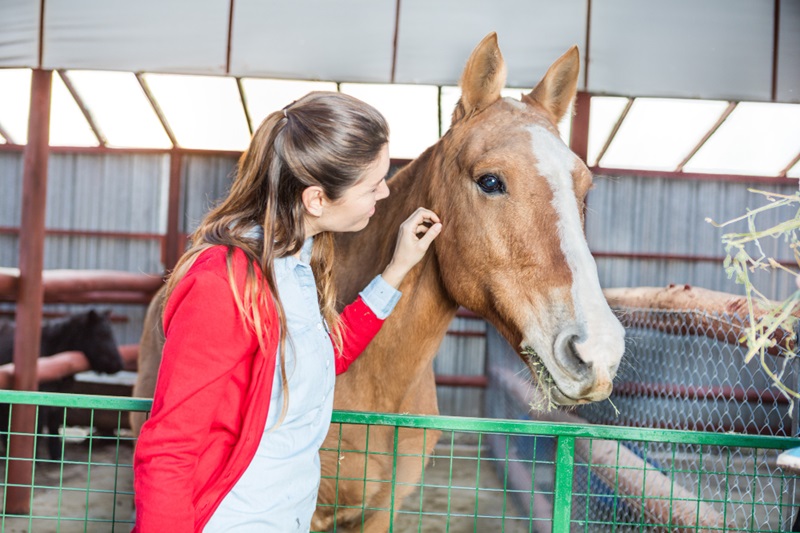Horses are incredible animals that require careful attention to their health. They can develop a variety of health issues that impact their performance, comfort, and overall well-being. From lameness to respiratory problems, understanding common health concerns can help horse owners take preventive measures. Early recognition and proper care are essential for keeping horses healthy and active. By learning about these common problems and how to avoid them, you can ensure your horse enjoys a happy and healthy life.
Lameness: Causes and Prevention
Lameness is one of the most common health issues in horses. It can result from injuries, hoof problems, or joint diseases.
- Causes: Lameness often stems from poor hoof care, improper shoeing, or overexertion. Conditions like laminitis, arthritis, or abscesses are frequent culprits.
- Prevention: Regular hoof care is crucial. Schedule routine trims and ensure proper shoeing. Avoid overworking your horse on hard or uneven surfaces. Providing a balanced diet with joint-supporting supplements can also reduce the risk of lameness.
Spotting early signs of lameness, like limping or reluctance to move, helps in seeking timely treatment.
Colic: A Serious Concern
Colic is a broad term for abdominal pain in horses and can range from mild discomfort to life-threatening conditions.
- Causes: Poor diet, sudden changes in feed, dehydration, or intestinal blockages can lead to colic. Stress or lack of exercise also plays a role.
- Prevention: Feed your horse a consistent diet with high-quality hay or forage. Ensure access to clean water at all times and avoid sudden dietary changes. Encourage regular exercise to keep the digestive system functioning well.
Monitoring your horse’s eating habits and bowel movements can help detect colic early. If symptoms like rolling, sweating, or refusal to eat appear, seek veterinary help immediately.

Respiratory Problems
Respiratory health is vital for a horse’s overall performance and well-being.
- Causes: Dusty environments, poor ventilation in stables, and prolonged exposure to allergens can cause issues like heaves or respiratory infections.
- Prevention: Keep stables well-ventilated and clean. Avoid feeding dusty hay, and consider soaking it before use. Allow horses ample time outdoors in fresh air.
Vaccinations for respiratory infections like influenza can also reduce risks. Regular check-ups can help in early diagnosis and treatment.
Parasite Infestations
Internal and external parasites can cause significant health problems for horses.
- Causes: Parasites like worms, ticks, and lice can lead to weight loss, colic, or skin irritations. Contaminated pastures and poor hygiene contribute to infestations.
- Prevention: Implement a regular deworming schedule as advised by your veterinarian. Keep pastures clean by removing manure frequently. Groom your horse regularly to check for external parasites.
Using fly repellents and maintaining clean bedding are additional measures to protect your horse from parasites.
Hoof Abscesses
Hoof abscesses are painful conditions caused by trapped bacteria inside the hoof.
- Causes: Wet conditions, puncture wounds, or poor hoof care can lead to abscesses.
- Prevention: Keep your horse’s living environment dry and clean. Regularly inspect and clean their hooves to detect any signs of injury. Use hoof boots when riding on rough terrain to prevent punctures.
Early treatment of abscesses prevents complications and long-term damage to the hoof.
Skin Conditions
Skin issues like rain rot, sweet itch, or fungal infections can cause discomfort and irritation.
- Causes: Prolonged exposure to wet or dirty conditions and insect bites are common causes of skin problems.
- Prevention: Groom your horse daily and check for any signs of irritation or infection. Provide clean and dry bedding. Use insect repellents and fly sheets during peak insect seasons.
Prompt treatment of skin issues helps avoid worsening conditions and keeps your horse comfortable.

Dental Problems
Dental health plays a significant role in a horse’s ability to eat and digest food properly.
- Causes: Uneven wear, sharp edges, or broken teeth can lead to chewing difficulties and weight loss.
- Prevention: Schedule regular dental check-ups with an equine dentist or veterinarian. Provide appropriate feeds that minimize dental stress, like softer hay for older horses.
Signs of dental problems include dropping food, foul breath, or difficulty chewing. Address these issues promptly.
Common Questions About Horse Health
How Can I Spot Early Signs of Health Issues in Horses?
Look for changes in behavior, eating habits, or mobility. Symptoms like limping, lethargy, or unusual sweating are warning signs.
How Often Should I Schedule Veterinary Check-Ups?
Regular check-ups every six months are ideal. However, seek immediate attention if your horse shows signs of illness or discomfort.
What Should I Include in a Horse’s Diet to Prevent Health Problems?
Provide high-quality hay, fresh water, and a balanced diet with necessary supplements for joint, coat, and digestive health.
How Do I Prevent Colic in Horses?
Feed consistent meals, avoid sudden dietary changes, and ensure your horse stays hydrated and active.
What Is the Best Way to Protect My Horse from Parasites?
Follow a deworming schedule, keep living spaces clean, and check for external parasites during grooming.
Make Your Horse’s Health a Top Priority
Caring for a horse requires diligence, knowledge, and regular attention to their health. By understanding common health issues like lameness, colic, and respiratory problems, you can take proactive steps to prevent them. Routine veterinary care, proper feeding, and a clean environment play crucial roles in keeping your horse healthy and happy. Early detection and prevention are the keys to ensuring your horse thrives for years to come. Taking these steps not only protects your horse but also strengthens the bond you share with this remarkable animal.

